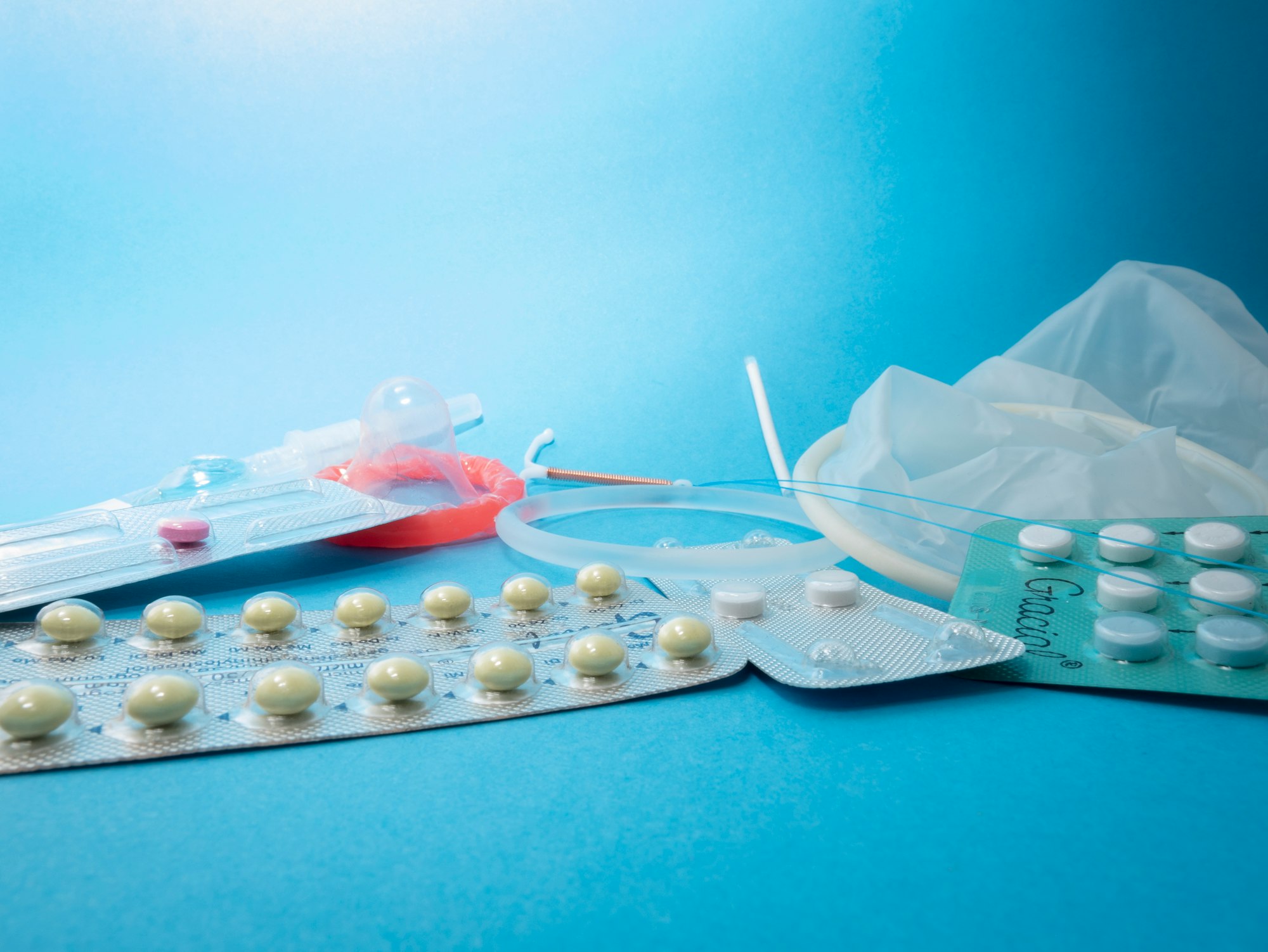When it comes to female health and wellness, hormones play a crucial role. From menstruation to menopause, every life phase is governed by these biochemical messengers. But what happens when the delicate hormonal balance is disturbed, as it often is during menopause? The solution is found in the world of hormone replacement therapy.
"It's hands down the biggest screw-up of the entire medical field in the last 25 years," said an expert in a recent discussion on the topic. But what led to this significant misstep?
Setting the Stage: Hormones and Their Roles
Estrogen, the prima donna of this symphony, has been widely acknowledged as the 'leading lady' in a woman's health narrative. But what is often overlooked is the significance of the supporting cast - progesterone and testosterone.
Imagine estrogen as the star soprano, leading with clear, soaring notes. Its role is pivotal in reproductive health, influencing the menstrual cycle, and it also impacts various aspects of overall health such as bone density, skin health, and mood.
However, a symphony isn't made up of one instrument, and the estrogen soprano is accompanied by progesterone - the alto whose mellow notes provide a critical balance to the soprano's high pitches. Progesterone is crucial for maintaining the lining of the uterus and plays a significant role in fertility.
Then there's the surprising presence of testosterone - typically associated with the masculine realm. It's the bass of this orchestra, lending depth and richness to the composition. In women, testosterone contributes to sex drive, energy levels, and mood.
In the context of hormones, think of testosterone as the string bass player in the back of the orchestra, often overshadowed by the spotlight on the soprano, estrogen.
Menopause: The Disrupted Symphony
As women age, the sweet harmony of this hormonal symphony is challenged. Menopause, with its decrease in hormone production, is like an out-of-tune instrument joining the orchestra, throwing the delicate balance into chaos.
As the conductor (estrogen) starts to falter, the music starts to waver - symptoms such as hot flashes, night sweats, sleep disturbances, mood swings, and cognitive decline start making their dissonant notes heard. It's as if the once harmonious symphony is suddenly out of sync, with each instrument playing its tune.
Hormone Replacement Therapy: A Controversial Composition
In an attempt to restore this hormonal harmony, medical science introduced Hormone Replacement Therapy (HRT). The concept of HRT is as straightforward as tuning a mistuned violin - artificially supplement the hormones that are dwindling, to bring the symphony back to its harmonious state.
"It's like appraising the performance of a flutist by the standards of a timpani player. The risks and benefits were misinterpreted, creating a climate of fear and hesitation towards HRT"
History of HRT and modern approach
For years, a treatment known as hormone replacement therapy (HRT) for women experiencing menopause was widely adopted. The premise was straightforward - as a woman's estrogen levels fall during menopause, why not supplement these hormones artificially to alleviate menopause symptoms?
However, a landmark study known as the Women's Health Initiative (WHI) in the late '90s and early 2000s caused a significant backlash against HRT.
"The study effectively turned the entire medical field off hormone replacement therapy for women"
The backlash came from a slight increase in the risk of breast cancer and heart disease in women undergoing HRT, which was sensationalized by the media and led to an overgeneralization of HRT's potential risks.
"It's a completely inappropriate context," explained Dr.Attia , stressing that the absolute risk was minute and the benefits far outweighed the potential dangers.
It's important to understand that hormone replacement therapy is not a 'one size fits all' solution. There are numerous factors to consider, such as a woman's health status, her family history, and her individual tolerance to hormones.
HRT has proven effective in treating menopausal symptoms and improving the overall quality of life. However, for some women, progesterone - a hormone used alongside estrogen in HRT - can cause adverse reactions.
"For some women, it literally drives them crazy,"
In such cases, the use of a progesterone-coated Intrauterine Device (IUD) has been suggested as an alternative to oral progesterone.
Another important aspect of the discussion was the role of Testosterone in women. While testosterone is often associated with men, women also have this hormone in their bodies - in fact, in larger quantities than estrogen.
"Based on the units they're reported in, it's a very distorting picture of what the most common Androgen is in her body. If you actually convert them to the same units, she has much more testosterone in her body than estrogen"
Testosterone supplementation in women is a rather uncharted territory and is currently recommended only for those suffering from low libido. More data is needed to fully understand the potential benefits and drawbacks of this treatment in women.
In the late '90s and early 2000s, the WHI conducted a study that turned the medical field away from HRT. It was the reaction to a widely held belief in the '70s and '80s that women should be given hormones as they went through menopause. However, the WHI study, despite its flaws, led to an enormous reduction in the use of HRT, leaving many women to suffer the debilitating effects of menopause without proper treatment.
"It's hands down the biggest screw-up of the entire medical field in the last 25 years" -Dr.Peter Attia
The Hormonal Cycle: An Overview
The discussion began with an overview of a woman's hormonal cycle, explaining the role of estrogen, progesterone, and testosterone in her body. Contrary to what many believe, women have more testosterone in their bodies than estrogen, although the former is less than in men, and the latter is higher.
"In absolute amounts, a woman has more testosterone than estrogen."
The conversation then moved onto the menstrual cycle, highlighting how these hormones fluctuate throughout the month, causing various physical and emotional changes. This understanding is crucial when discussing menopause and HRT.
The Misunderstood Impact of Menopause and HRT
As women reach menopause, their estrogen levels decrease significantly, leading to a variety of symptoms such as osteoporosis, brain fog, and more. The introduction of estrogen therapy in the '50s seemed to be an effective solution. However, the discovery that it was increasing the risk of uterine cancer caused concern, leading to the WHI study.
The WHI study has been widely criticized for its approach. The test subjects were older women who were not symptomatic, meaning they were not the typical patients for HRT. Furthermore, the estrogen therapy used was based on horse urine, which does not represent the bioidentical estradiol currently used.
Despite these considerations, the study showed a relative increase in the risk of heart disease and breast cancer. However, experts argue that these findings were taken out of context and blown out of proportion.
"One of my biggest pet peeves is, you never talk about a relative risk change without an absolute risk accompanying it." Dr. Peter Attia.
The Current Approach to HRT
Presently, the preference is for bioidentical hormones and a personalized approach to HRT. Testosterone is also a consideration, but with less research data, it's used with caution, primarily in cases of low libido.
Key Points:
- Estrogen, progesterone, and testosterone play distinct roles in the hormonal symphony of women's health.
- Menopause disrupts the delicate balance, leading to various symptoms and challenges.
- Hormone Replacement Therapy (HRT) aims to restore hormonal harmony but faced controversy due to misinterpreted studies.
- Modern HRT approaches prioritize bioidentical hormones and personalized treatment plans.
- Testosterone's role in women's health is gaining recognition and inclusion in treatment strategies.
- Understanding the complexity of hormones allows for refining approaches to promote lifelong health and wellness.
Conclusion
In the grand orchestral performance of our body, hormones are the core ensemble, playing a vital role in maintaining equilibrium and ensuring our health. These biochemical messengers are akin to melodies in a symphony, creating a harmonious whole. In women, this symphony is led by estrogen, progesterone, and testosterone. Together, these three are the key players that conduct the complex dance of women's health, orchestrating everything from fertility to mood regulation. As we age and our bodies undergo changes such as menopause, this harmonious performance can go off-key. Yet, the evolution of personalized Hormone Replacement Therapy, using bioidentical hormones, offers a promising avenue to retune our bodily orchestra, with the ultimate goal of promoting lifelong health and wellness.



